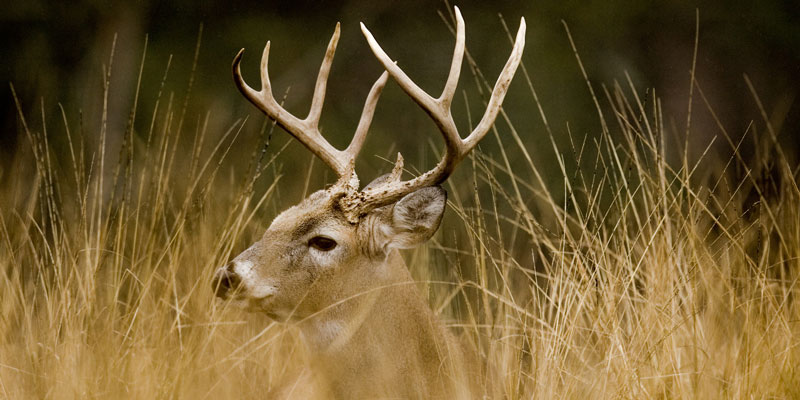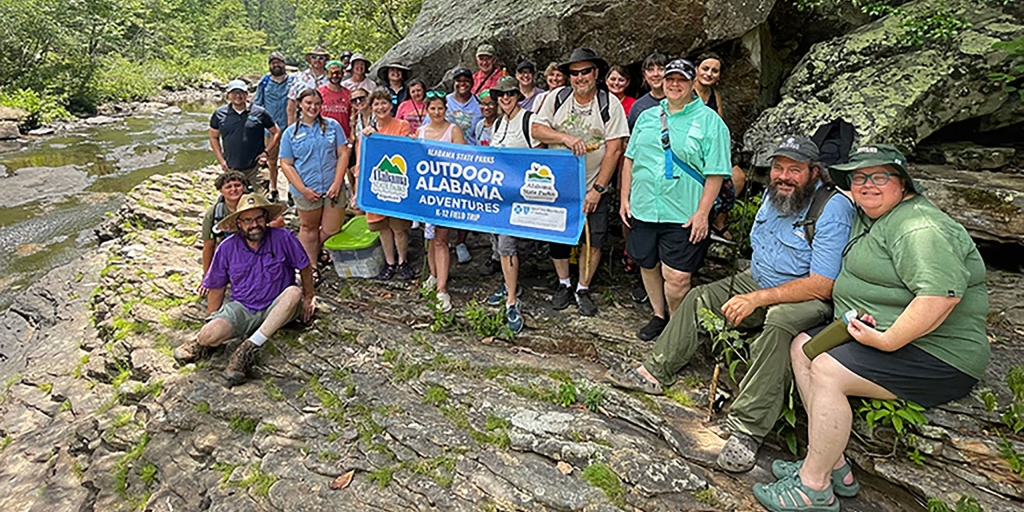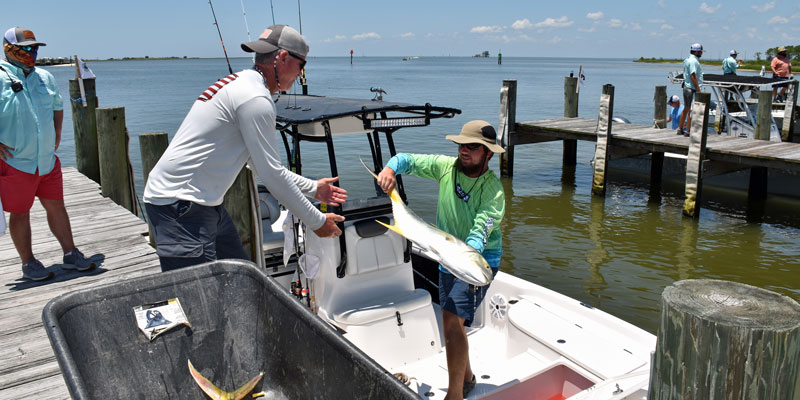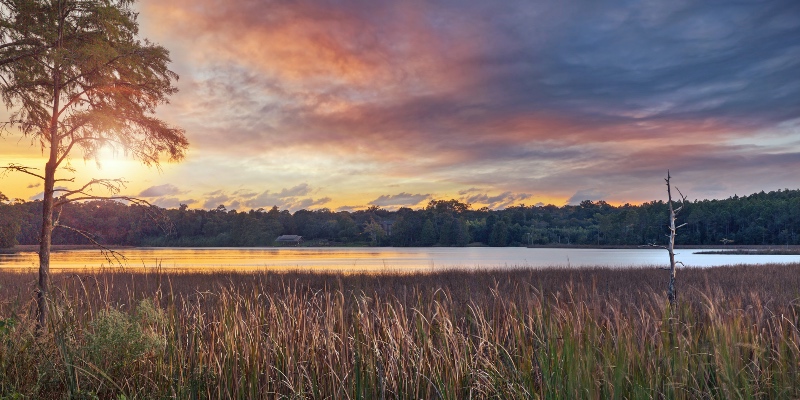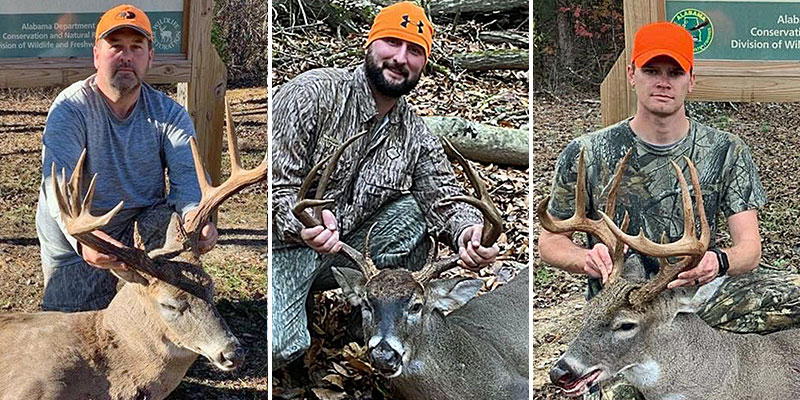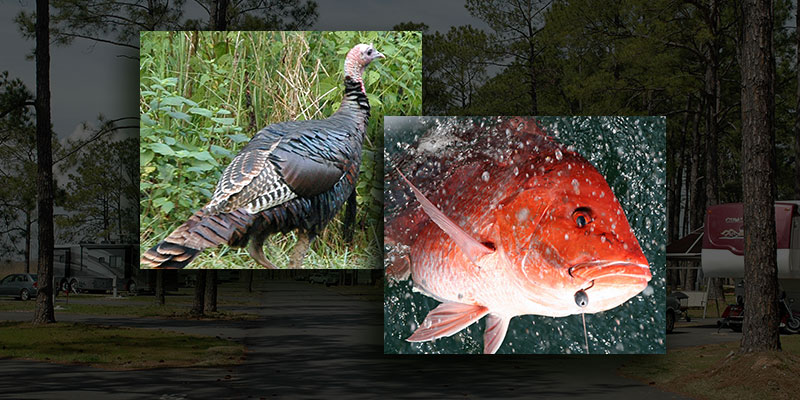Although complaints about dog deer hunting have fallen dramatically in the past several years, dog deer hunting has continued to cause conflicts, particularly around the Talladega National Forest.
The Alabama Conservation Advisory Board provided Conservation Enforcement Officers with the Alabama Department of Conservation and Natural Resources’ (ADCNR) Wildlife and Freshwater Fisheries (WFF) Division another tool to deal with dog deer hunters who cause problems.
At the Board’s meeting last week in Montgomery, Board member Kevin Savoy of Abbeville proposed an amendment to the dog deer hunting regulations that passed unanimously.
The proposed amendment to the current Dog Deer Hunting Regulation adds the following: It shall be unlawful for any person owning, having the care of, or using any dog, to allow any dog or dogs for the purpose of deer hunting to enter onto, cross or remain upon the property of another without written permission of the landowner or lessee of the property. Written permission, which may be a paper copy, email, text or other electronic form, shall be in the possession of each person using such dog(s) on the property of another person and shall be presented upon the request of any Conservation Enforcement Officer.
A first offense of the regulation would result in a written warning. Subsequent violations may result in written citations.
The proposed amended regulation also states that without the permission of the owner, it is unlawful to remove, tamper with or disable any GPS tracking collar or training correction collar on a dog used for the purpose of deer hunting.
“For many years we’ve had people come from different parts of the state that had issues with dogs getting on their property, primarily around the Talladega National Forest, where we’ve seen most of the issues as of late,” Conservation Commissioner Chris Blankenship said. “As I mentioned yesterday in a meeting with the dog deer hunters, I’ve been coming to Advisory Board meetings for close to 30 years. The Board meetings used to last from early in the morning until late in the afternoon because of all the complaints and problems with dog deer hunting around the state.
“Most of those have been addressed. It’s in a much different place now than it was 30 years ago. A lot of that has to do with the responsibility of the hunters and the technology improvements. We have so many less issues than we’ve had in the past. But we are still receiving complaints in certain areas, and, after hearing from the public for several years and talking with Board members, I hate not to address those problem issues that remain. For several years, landowners around the Talladega National Forest have continued to have problems with certain folks. So our options are three – one is to do nothing at all and let those people continue to have problems and have their hunts impacted because of a handful of dog hunters not doing it correctly; two is to put more areas on the permit system or do a statewide permit system, which, I think, is not really fair to the dog deer hunters who are doing it correctly; and third is to allow our officers a tool to address the issue with folks who are not doing it correctly and letting their dogs get off on other people’s property. I think this a tool for our officers to be able to handle the remaining problems.”
Board member Raymond Jones of Huntsville echoed Commissioner Blankenship’s sentiment and said during the 32 years that he has attended or been a member of the Board that the dog deer hunting issues have changed significantly.
“I know many of you who are in this room, you guys are doing it right,” Jones said. “I can’t tell you in the 32 years I’ve been around how much it’s improved. But we still have problems. I think this solution will greatly enhance the ability of you (dog deer hunters) to do what you love to do.”
Board member Grady Hartzog of Eufaula said he has fielded fewer and fewer complaints about dog deer hunting over the past two years.
“Kevin (Savoy) and I live in the district that generally got the most complaints over the years,” Hartzog said. “Things have gotten tremendously better. Any complaints I’ve gotten, I can call Lonnie (Miller) or Don (Knight) and get the problem handled almost immediately. We appreciate that. I think the dog hunters have come a long way in cleaning up their act.”
Board Chair Joey Dobbs added, “It has been a long road with the dog deer hunters. Things are better. We don’t have violence. Fifteen years ago, there were incidents of violence in the field and in our meetings. I commend them for doing what they’re doing and the responsible action of the Alabama Dog Hunters Association.
“We’re here to work with everybody, but the resource is our number one goal.”
Commissioner Blankenship said the seasons and bag limits proposed by WFF have one change. Because of the legislation passed this year concerning deer breeders, the section that deals with deer breeders in the CWD (chronic wasting disease) zones has been removed.
The Board approved the Wildlife and Freshwater Fisheries (WFF) Division proposed bag limits and season dates. One change was made to the deer season framework that deals with the unantlered deer daily bag limit in most of the state. The unantlered deer bag limit was increased to two per day in all zones for the entire season with the exception of Zone C in the north central portion of the state. The antlered deer season limit will remain at three.
Marine Resources Director Scott Bannon appreciated the board’s approval of several changes, including the removal of the exception for anglers to keep one redfish larger than 26 inches in total length to protect the brood stock of the species, a reduction in the bag limit for sheepshead from 10 fish to eight because of increased fishing pressure, and an increase in the daily harvest limit for commercial gill net anglers who target flounder from 40 fish per day to 80 fish per day. A bag and size limit for common snook, which is expanding its range into Alabama coastal waters, was established with the limit on snook of one per day per angler with a 28-inch minimum size total length. Another change allows commercial shark anglers to have 2,400 feet of line with a maximum of 50 hooks at least 15/0 in size. The line would be required to be anchored and marked with an identification number, and squid would be outlawed as bait because it can attract sea turtles. Also, the captain and crew of Alabama Commercial Party Boats shall not retain bag limits of fish harvested in state waters.
Commissioner Blankenship took the opportunity to share a compilation of accomplishments of the ADCNR staff regarding outdoor recreation with a brochure that will be submitted for the Southern Legislative Conference in Birmingham in July.
“When you look at all the types of work we’re doing Department-wide for outdoor recreation, it’s more than $406 million of work that is taking place, and that includes $228 million in State Parks, $56 million in boating access projects, $76 million in beach renourishment and beach access, $10 million for State Lakes, $20 million in shooting sports facilities and $12 million for trail enhancements,” Commissioner Blankenship said. “You put it all together, and that’s a lot of work that our staff is doing statewide. I’m very impressed with the work that has taken place. When you see anyone from our staff, please thank them for the work they are doing, because it’s making a generational difference for our state in outdoor recreation. It’s something we can all be proud of.”
Commissioner Blankenship shared that he and his family were able to participate in the opening weekend of the red snapper season for private recreational anglers.
“More people fished this opening weekend compared to last year when the weather wasn’t as good,” he said. “It was a great weekend. I got to go with my dad on Opening Day, my son on Memorial Day, and with my wife on Saturday. It was nice to get out for several days and enjoy the resource with my family.”
David Rainer is an award-winning writer who has covered Alabama’s great outdoors for 25 years. The former outdoors editor at the Mobile Press-Register, he writes for Outdoor Alabama, the website of the Alabama Department of Conservation and Natural Resources.




